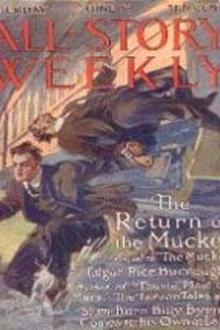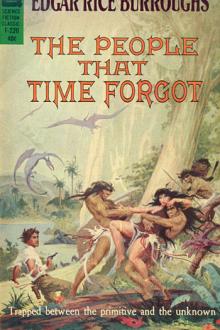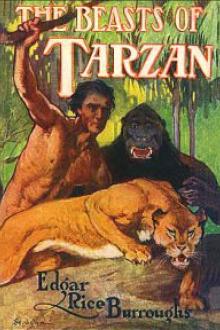The Return of the Mucker by Edgar Rice Burroughs (top inspirational books TXT) 📕

- Author: Edgar Rice Burroughs
- Performer: -
Book online «The Return of the Mucker by Edgar Rice Burroughs (top inspirational books TXT) 📕». Author Edgar Rice Burroughs
is prisoner ahead of him, started for the smoker. It was two cars ahead. The train was vestibuled. The first platform they crossed was tightly enclosed; but at the second Billy saw that a careless porter had left one of the doors open. The train was slowing down for some reason--it was going, perhaps, twenty miles an hour.
Billy was the first upon the platform. He was the first to see the open door. It meant one of two things--a chance to escape, or, death. Even the latter was to be preferred to life imprisonment.
Billy did not hesitate an instant. Even before the deputy sheriff realized that the door was open, his prisoner had leaped from the moving train dragging his guard after him.
CHAPTER II
THE ESCAPE
BYRNE had no time to pick any particular spot to jump for. When he did jump he might have been directly over a picket fence, or a bottomless pit--he did not know. Nor did he care.
As it happened he was ov
Free e-book «The Return of the Mucker by Edgar Rice Burroughs (top inspirational books TXT) 📕» - read online now
Similar e-books:





Comments (0)